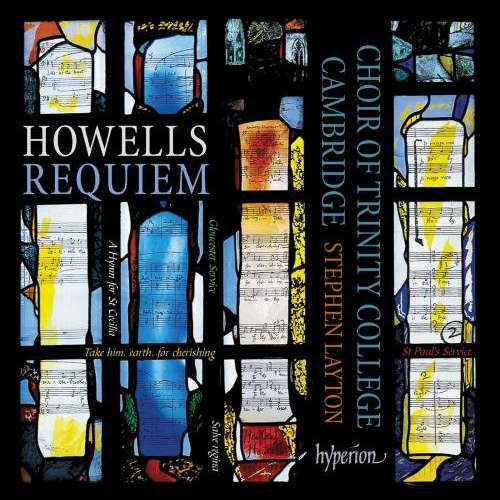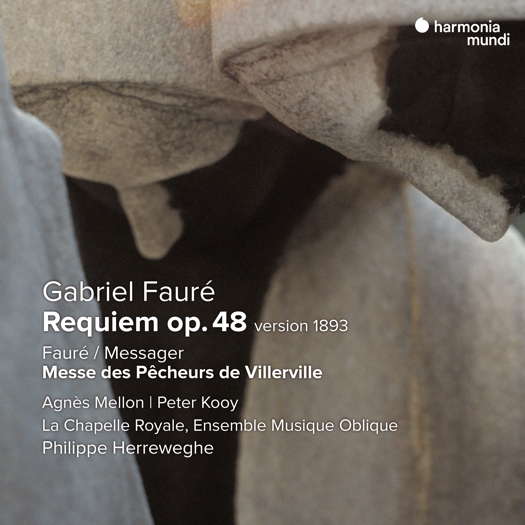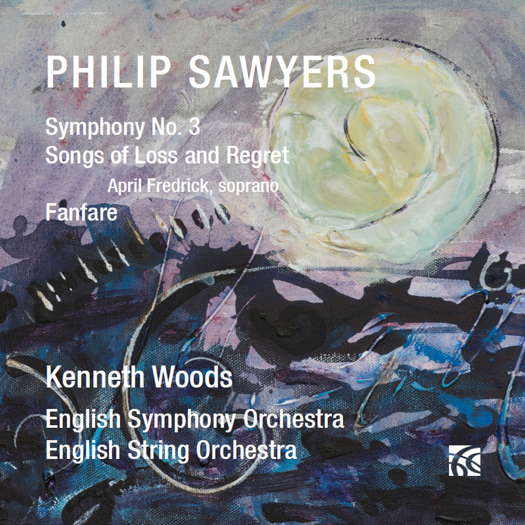 SPONSORED: CD Spotlight. Beautifully Apt - Choral music by Herbert Howells, heard by Robert Anderson.
SPONSORED: CD Spotlight. Beautifully Apt - Choral music by Herbert Howells, heard by Robert Anderson.
All sponsored features >>

Tremendously Moving
Well-known and less well-known French choral music, recommended by GERALD FENECH
'... performances are full of profound grandeur ...'
The reasons why Gabriel Fauré (1845-1924) composed his Requiem are uncertain. One possible impetus may have been the death of his father in 1885, and his mother's death two years later on 31 December 1887. However, by the time of his mother's death he had already begun the work, about which he later declared: 'My Requiem was not written for anything - for pleasure, if I may call it that.'
The earliest composed music included in the piece is the Libera me - just like Verdi's work - which Fauré wrote in 1877 as an independent composition.
Listen — Fauré: Libera me (Requiem)
(HMM 931292 track 6, 1:06-1:40) ℗ 1988 harmonia mundi musique sas :
In 1887-88, Fauré composed the first version of the Requiem, which he called 'a little Requiem' with five movements. In this version the composer decided to leave out the Libera me. This initial version was first performed on 16 January 1888 for the funeral of architect Joseph Lesoufuche at La Madeleine in Paris. The conductor was Fauré himself.
In 1889 the composer added the Hostias portion of the Offertory and added the 1877 Libera me. This second version was premiered on 21 January 1893, again at La Madeleine and Fauré conducting.
Listen — Fauré: Offertoire (Requiem)
(HMM 931292 track 2, 3:33-4:32) ℗ 1988 harmonia mundi musique sas :
In 1899-1900, the score was reworked for full orchestra. This final version was premiered at the Trocadero in Paris on 12 July 1900 during the Universal Exposition. Paul Taffanel conducted two-hundred-and-fifty performers.
In the composer's words:
Everything I managed to entertain by way of religious illusion I put into my Requiem, which moreover is dominated from beginning to end by a very human feeling of faith in eternal rest.
In 1924 this last version of the Requiem was performed at Fauré's funeral. Indeed, this Requiem is totally different from that of Berlioz and Verdi, and to a lesser extent, from that of Mozart. The beauty of it is that it captures the real feeling of eternal rest and consolation with potent simplicity.
Listen — Fauré: In Paradisum (Requiem)
(HMM 931292 track 7, 0:00-0:53) ℗ 1988 harmonia mundi musique sas :
From a popular work to a rarity: the Messe des pêcheurs de Villerville (Mass of the Fisherman of Villerville) was composed in 1881. Fauré wrote it in collaboration with André Messager (1853-1929), his former pupil. In five movements, this Mass was premiered on 4 September 1881, accompanied by a harmonium and a violin. The concert was in aid of the fishermen's charitable association in Villerville, and it was warmly received. Messager orchestrated the first four sections and Fauré the last. A second performance in the same venue was given the following year, this time with full orchestra.
Listen — Messager: Kyrie (Messe des pêcheurs de Villerville)
(HMM 931292 track 8, 0:01-0:52) ℗ 1988 harmonia mundi musique sas :
In 1907, Huegel and Cie published a version removing Messager's sections and the Gloria and incorporating a new Kyrie by Fauré. This version later appeared under the title of Messe basse. The music is of an astounding beauty, music that not only nourishes the hope that death is not the last word, but that also draws the listener into a spiritual intimacy with the mystery of immortality.
Listen — Messager: O Salutaris (Messe des pêcheurs de Villerville)
(HMM 931292 track 11, 0:00-0:58) ℗ 1988 harmonia mundi musique sas :
Recorded in 1988, this disc is most deserving of this re-issue. Indeed, performances are full of profound grandeur and Philippe Herreweghe's interpretation is tremendously moving and with an intensity that reveals all of Fauré's wondrous score with revelatory insight.
Listen — Fauré: Agnus Dei (Messe des pêcheurs de Villerville)
(HMM 931292 track 12, 2:23-3:11) ℗ 1988 harmonia mundi musique sas :
Apart from some minor flaws in the recording, this is a disc for all aficionados of sacred choral music and also for music lovers in general which I recommend wholeheartedly. Don't miss it.
Copyright © 28 June 2023
Gerald Fenech,
Gzira, Malta




